If there is any drama this year that has caused polarising positions, it’s the currently-airing drama, Love is for Suckers. This Kim Sol-ji drama starring Lee Da-hee and Choi Si-won charts the will-they won’t-they romance of a pair of highschool friends who have both been unsuccessful in the game of love and who end up involved in a TV dating show.
Love is for Suckers suffered somewhat right out of the gate due to audience misconceptions of what the drama would entail. Penned by the writer of comedy Pegasus Market, and starring the hilarious Choi Si-won, many expected the drama to emphasise the comedy in romantic comedy. As a consequence, the show’s slow, reflective, almost melo tone took people by surprise.
But more than undelivered expectations, Love is for Suckers, has developed a deeper and more fundamental thematic problem that has confused and divided its audience. This comes down to what Love is for Suckers is even about and what it is trying to say about love and relationships.
When the drama opens, we meet reality TV producer, Goo Yu-reum (Lee Da-hee) and her long time best friend, neurologist-turned-plastic-surgeon Park Jae-hoon (Choi Si-won). To outline this part of the drama is to touch on its thematic problems. Love is for Suckers seemed to be the story of two jaded people who were disappointed in love – her trying to methodically but joylessly keep herself ‘in the game’, him having dropped out completely – who slowly realise they wanted to take that leap again together.
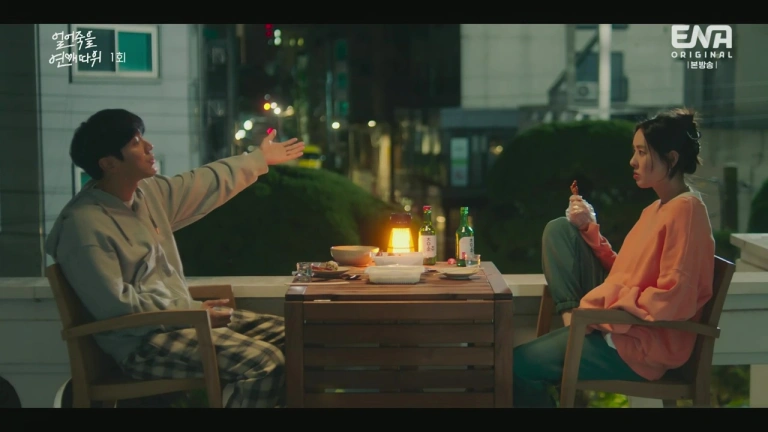
As far as stories go, it’s definitely not funny but it could be heartwarming and romantic. Unfortunately, as the drama has unfolded it seems that this isn’t what it is about.
About the same time that Yu-reum is dumped by the shallow wannabe playboy, John Jang (Park Yeon-woo) and is forced to move to vapid dating show, Kingdom of Love, she’s swept off her feet by her ex and is talked into quickly marrying him. The marriage collapses the day of the wedding and, after she’s whisked off to the beach for some recovery time by Jae-hoon, she soon finds herself on the remarkably complicated set of Kingdom with Jae-hoon, John Jang and Han Ji-yun (Lee Ju-yeon), a woman who’s long been in unrequited love with the disinterested doctor.
It’s important to note that at episode 12 of Love is for Suckers, two episodes of the dating show have aired. That places the timeline at around three weeks since Yu-reum’s entire life fell apart. This is important.
As the drama has unfolded, it’s become increasingly clear that what Love is for Suckers is exploring is a kind of binary approach to relationships whereby a person is either frivolous or sincere: the real or the fake. The dating show then embodies a frivolous, shallow approach to love and dating, with the implication that this is an entirely modern phenomena, that somehow things have gotten worse over time.
Its portrayal of a soem (a Korean word that could translate as flirting but is meant to convey an acceptance of mutual feelings that has not yet progressed to a relationship) is of some kind of lessor, unserious state that is inherently shallow. By this philosophy, romantic relationships should be always approached with earnesty and a kind of deathly seriousness. Casually dating or getting to know somebody would then be seen as destructively shallow.
It’s probably no surprise that I personally take issue with this characterisation and not just for the dichotomous way the show tries to deal with a spectrum of emotions. And yet its somewhat hokey “oh the modern world is awful, everything is so fake” theme or its insistence on screen time dedicated to a grindingly boring dating show are not the parts of the drama I take the most issue with.
There are several relationships canvassed in the drama, not the least of which is Yu-reum and Jae-hoon’s: the ostensible OTP. These two have been friends for twenty years, been there for each other in their darkest hours, and have a deep, entirely unfrivolous connection. But, despite Jae-hoon being in love with her since University, it has never turned romantic.
On set, Ja-hoon reconnects with Ji-yeon – a woman he went on a blind date with once and who has always had feelings for him. Throughout Kingdom of Love, we’re forced to endure Ji-yeon behaving like some kind of martyred female version of a Nice Guy. Her stricken looks and quivering lip as Jae-hoon refuses to return her affections are problematically used by the writer to portray her sincerity as though sincerity alone justifies her behaviour.

Surrounded by the fake and insincere, we are supposed to be impressed with her unwavering, earnest emotional honesty. Yet her behaviour is emotionally manipulative: designed to make Jae-hoon feel as though he’s being cruel by not accepting her sincerity and, in the light of the public airing of this relationship, to garner the public’s sympathy against him.
The show’s biggest issue here is the way in which this behaviour is increasingly paralleled with Jae-hoon’s own. Yes, every scene with Ji-yeon is like nails on a chalkboard but if the show was critiquing this behaviour then it could be seen as a necessary evil. Instead, the writer has replicated this behaviour in Jae-hoon.
Convinced he nearly lost Yu-reum to another man, Jae-hoon is motivated to confess his feelings for her. That he does so two days after her failed wedding is somewhat questionable but we all make mistakes. Yu-reum of course – lost and heartbroken and stuck working a demanding job right after her life fell apart – panics at the thought of losing the one friend she’s always been able to rely on and aggressively friendzones him. After all, if there’s one thing life has taught her it’s that romantic partners leave but friends stay.
Jae-hoon responds to this by emulating Ji-yeon’s manipulative behaviour. He ices Yu-reum out, acts as though the last twenty years of friendship didn’t happen or weren’t in any way real, and sends a very clear message – if you want me in your life, it’s as a romantic partner and nothing else. This is the behaviour of a quintessential Nice Guy and it reframes all Jae-hoon’s previous actions as being contingent on the understanding they would eventually end up together. Jae-hoon has been putting supportive, loving behaviours in hoping to get a romantic partner out the other end. Now that possibility has apparently been taken off the table, he withdraws that support – and right when she needs it the most.
Yu-reum’s ex had once declared that men and women cannot be friends. It seems the writer agrees. Or rather, she can be friends with him but he is not friends with her. He’s just waiting.
Feeling her one remaining foundation slip away, Yu-reum then does the only thing she can think of to restablise it. She sleeps with him. He’s given her no choice.
And yet, because Jae-hoon is ‘sincere’, because Ji-yeon is ‘sincere’, then we’re asked to judge not them or their behaviours but to judge those who have the audacity not to return their ‘sincere’ feelings – Jae-hoon and Yu-reum. Their sincerity, we’re told, is something that should be rewarded. They’ve earned something that needs to be given, created a debt that needs to be repaid.
The irony here is that, in terms of exploring the shallow image-obsessed world of dating shows versus the more sincere world of real relationships, the show is actually doing it. It’s just doing it with the minor characters instead of our main OTP.
John Jang initially pairs up with the most photogenic woman on set, hoping to win points by being the best looking. As the show progresses, however, he’s drawn increasingly to the decidedly unglamorous, timorous, Park Ji-wan (Son Hwa-ryung). As far as messages about delving beneath the surface and not being distracted by the shiny but empty, John Jang’s emotional progression demonstrates what the drama seems to be trying (and failing) to do.
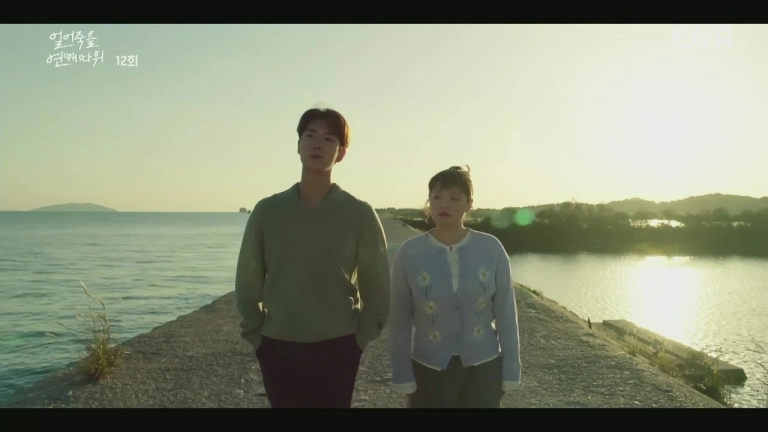
Although “dating show is fake” is not the most original theme (we all know dating shows are fake), if you did want to explore this theme, then the budding romance between John Jang and Park Ji-wan is definitely sweeter and more heartwarming than the gross emotional manipulation that led Yu-reum to sleep with her long-term so-called best friend to stop him leaving.
Your reminder: it’s been about three weeks.
By setting up a dichotomous opposition between sincerity and frivolity as its main theme, Love is for Suckers has unwittingly ended up promoting a transactional view of relationships. Put sincerity in, get a relationship out. And if the other person doesn’t want to give you a relationship despite your sincerity, then they are the ones at fault. The solution is to follow them around being more sincere. Eventually they’ll cave.
So romantic.

Love is for Suckers is available with English subtitles on Viki
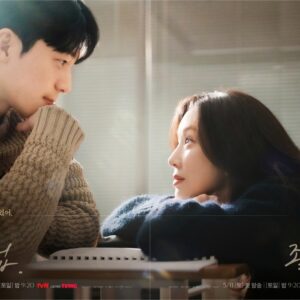

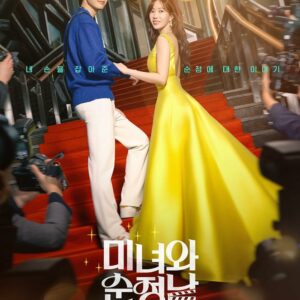
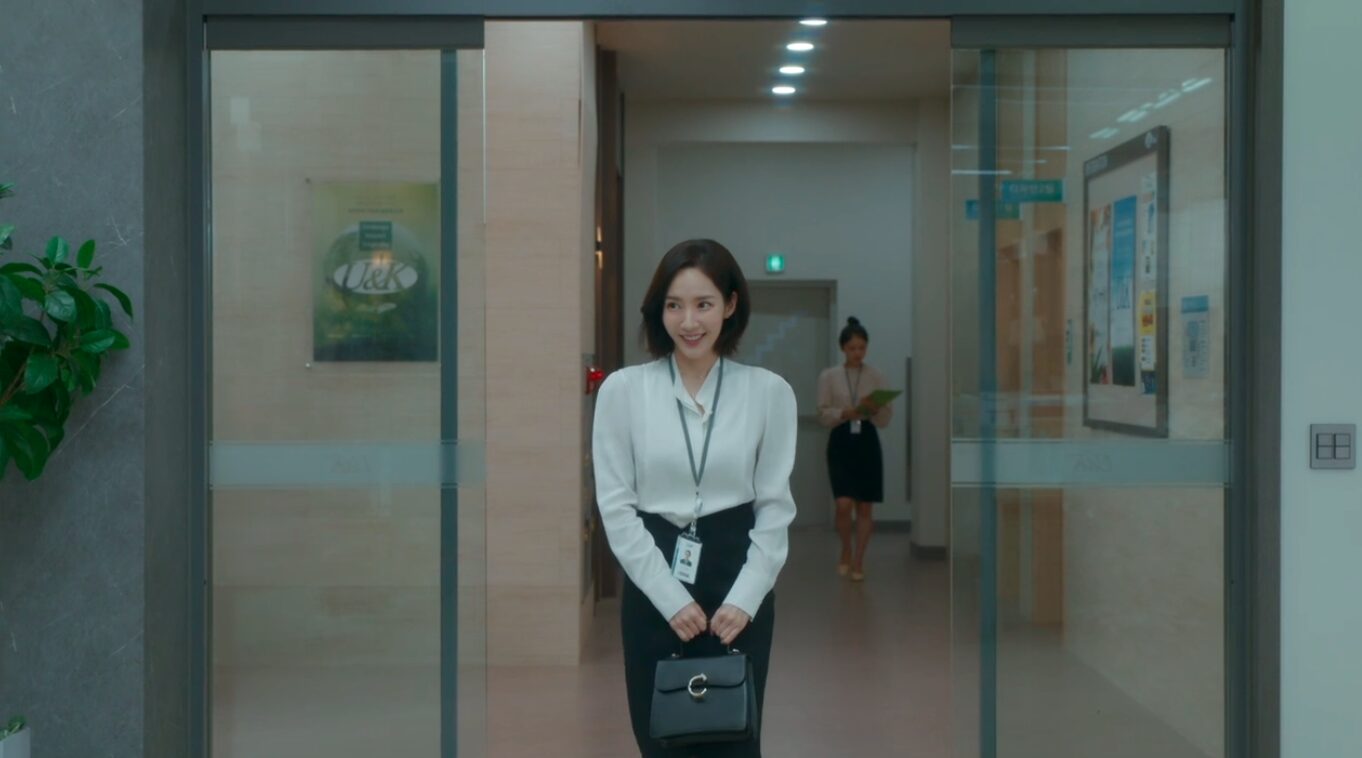
I dropped it at the end of episode 8, after enjoying the first six episodes, well mostly. I felt both parties were abusing the relationship and I wasn’t happy how the second leads were being portrayed. Still, the opening episodes promised so much!
Yes I enjoyed the first six episodes as well. It was a surprise how serious and reflective it was but I thought it was quite good. But now I think I’ll probably drop it as well.